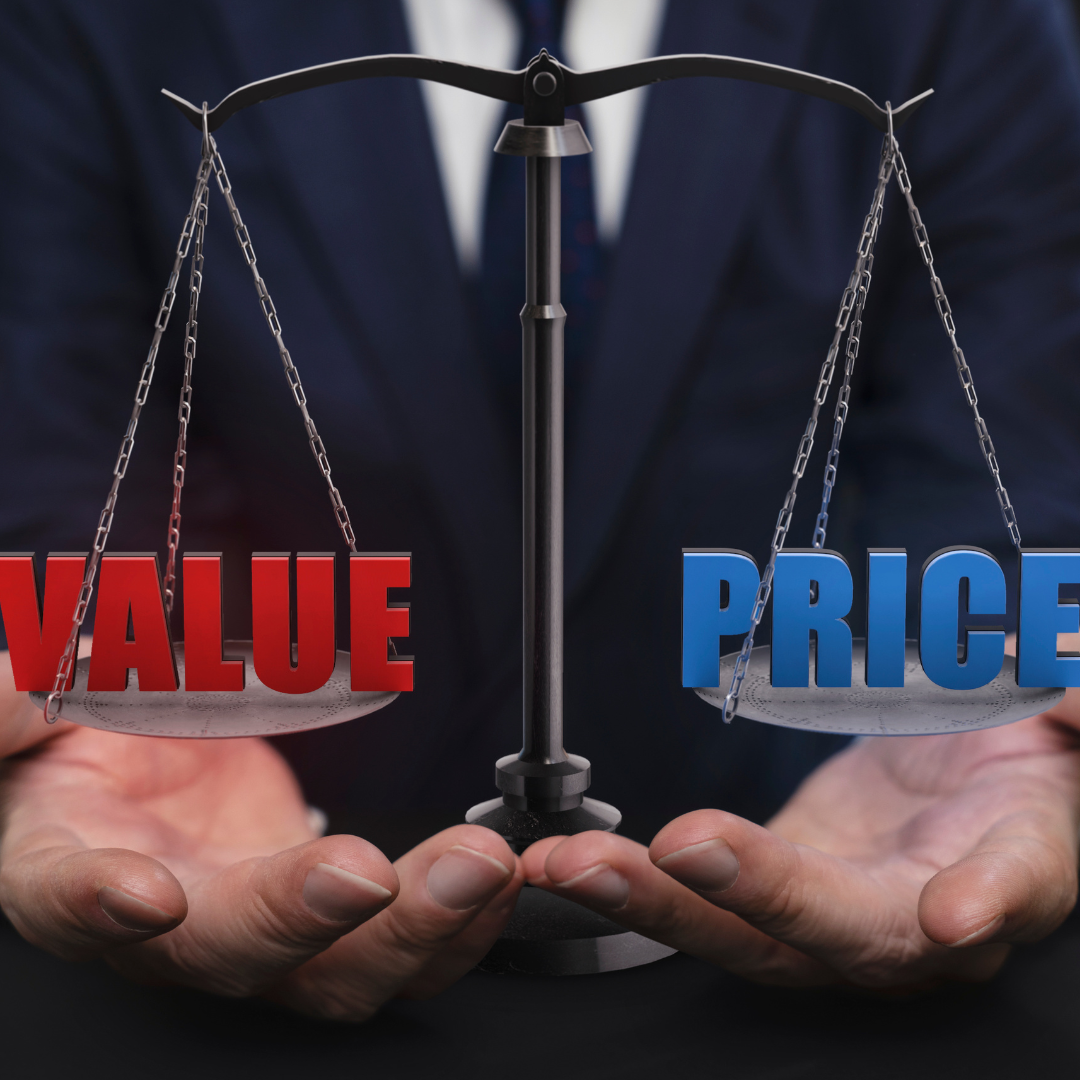What Is a Business Broker? 10 Things Owners Should Know

Key Takeaways
- A business broker is your sales partner, representing you in a business sale just like a real estate agent helps sell a house.
- Brokers handle pricing, marketing, buyer screening, and negotiating sales terms to get you the best possible deal.
- It's essential to vet a broker's qualifications, such as Certified Business Intermediary (CBI) credentials and membership in professional organizations like the IBBA.
- Be aware of broker fees and ensure transparency; most are paid through success fees, aligning their goals with yours.
- Avoid brokers who use high-pressure tactics or seem to minimize their financial risk while maximizing yours.
Your Partner in the Sale: What a Business Broker Does
Think of a business broker as a dedicated sales team for your company. Like a real estate agent with the specific knowledge and connections to sell a house, a business broker has the specialized expertise to sell a business. They manage the entire process, from determining the right price to finding potential buyers and guiding the sale details.
A business broker acts as an intermediary, representing the seller in finding qualified buyers and negotiating the best possible terms for the sale. Here’s how FCBB typically helps:
- Valuation and Pricing: We help determine a realistic asking price for your business, backed by data on its value and current market conditions.
- Marketing and Advertising: We create compelling marketing materials and confidentially advertise your business to a vast network of potential buyers.
- Buyer Screening: We vet potential buyers to ensure they are serious and financially capable, protecting your confidentiality throughout the process.
- Negotiation: Our brokers assist in negotiating the terms of the sale, working to get you an agreement that truly benefits you.
- Transaction Management: We manage the paperwork and coordinate with other professionals, like attorneys and accountants, to ensure a smooth, efficient closing.
Selling a business can be a complex and time-consuming process. A business broker brings specialized skills and experience to manage these complexities, aiming for a smoother and more successful transaction. While you could sell your business yourself, a broker's specialization in business transactions is a significant advantage when you're ready to sell.
FCBB's Proven Process: How We Guide Your Sale
Selling a business is a multi-step process, and FCBB specializes in guiding our clients through every phase. We act as intermediaries, connecting business owners with potential buyers and guiding both parties through the transaction. Our primary goal is to facilitate a smooth and successful sale, often achieving a better price and terms than an owner might.
FCBB's multi-step approach to selling a business includes:
- Preparation and Valuation: The process begins with thoroughly evaluating your business. We gather detailed financial information, analyze your operations, and assess your market position to determine a realistic and competitive asking price.
- Marketing and Buyer Identification: We develop a confidential marketing strategy, creating a comprehensive business review (CBR) that provides key details to potential buyers without revealing your identity. We then market your business through our established networks, online platforms, and industry-specific contacts.
- Buyer Screening and Negotiation: As prospective buyers express interest, we screen them to ensure they have the financial capacity and genuine intent to purchase. We manage all communications and play a key role in negotiating the terms of the sale, bridging any gaps between the buyer's and seller's expectations.
- Due Diligence and Closing: After an agreement is reached, we assist the buyer in conducting due diligence—a thorough investigation of your business's financials and legal standing. We coordinate with attorneys and accountants to ensure all necessary documentation is prepared and the transaction proceeds to a successful closing.
Finding the Right Partner: Qualifications & Certifications
Choosing the right person to help sell your business is a big decision. Since there aren't strict rules about who can call themselves a business broker, it's up to you to check their background. A good broker will have credentials that prove they've put in the work to learn the trade.
Here are the key qualifications to look for in a professional partner:
- Certifications: While not always required, certifications like the Certified Business Intermediary (CBI) are a great sign. They show a broker has met specific educational and experience standards set by professional groups like the International Business Brokers Association (IBBA).
- Experience with Similar Businesses: Selling a retail shop differs from selling a manufacturing plant. A broker specializing in businesses like yours will have a better grasp of the specific buyers and deal structures involved.
- Professional Affiliations: Membership in industry groups demonstrates a commitment to professional standards and ongoing education.
- Track Record: Ask about their past sales. A broker with a history of successful transactions, especially in your business's size category, is a much safer bet.
Remember, a trustworthy broker will provide a grounded, well-researched valuation based on market data and comparable sales, not just tell you what you want to hear.
Clarity on Fees: Understanding Broker Pricing
Understanding how a business broker gets paid is essential. Most brokers, including those at First Choice Business Brokers, work on a success fee. This means they only get paid if they successfully sell your business. It's usually a percentage of the final sale price, which perfectly aligns their goals with yours—they are motivated to get you the best price possible.
Here’s a general idea of how fees can work:
- Success Fee: This is the primary commission, paid upon closing the sale. The percentage can vary, often lower for larger businesses and higher for smaller ones.
- Retainer or Other Fees: While some brokers may ask for a retainer to cover initial costs, this should be a small, transparent fee, not a large upfront payment.
Always ask for a clear breakdown of all potential fees. Transparency is key, so don't hesitate to ask for specifics about their fee structure before signing any agreement. A good broker will be completely upfront about all costs.
The Added Value of a Real Estate License
A real estate license for your business broker can be a big plus when selling your business, especially if it includes property like a building or land. In some states, it's a legal requirement. A broker with a real estate license can effectively present the combined business and property opportunity to buyers. This integrated approach can lead to a smoother transaction. It may make it easier for a buyer to secure financing through programs like the SBA 7(a) loan, which often favors real estate deals.
Finding Qualified Buyers: It's About Quality, Not Quantity
When a broker looks for buyers, it's not just about getting a massive list of names. It’s about connecting your business with the right buyer—someone who is serious, financially qualified, and a good fit for your company.
A good broker's process is designed to find this perfect match:
- Screening Inquiries: The broker will ask questions to gauge a buyer’s seriousness and financial capability.
- Non-Disclosure Agreements (NDAs): To protect your business data, all buyers must sign an NDA before sharing any confidential information.
- Confidential Information Memorandum (CIM): The broker then provides a detailed CIM, giving qualified buyers a deeper look into your business's operations and financials.
The real work is in the quality of the buyer, not just the quantity. A broker who focuses on finding buyers with a proven track record of successful acquisitions in similar industries is invaluable.
Negotiating Sales Terms: Your Broker as a Buffer
Once a buyer expresses serious interest, the negotiation begins. This is where a good business broker truly earns their keep. They act as a buffer, managing communications and keeping emotions in check, which is essential when discussing the sale of something you've built.
The broker will help you navigate the offer's specifics, including the purchase price, payment structure (e.g., all cash, seller financing, earn-outs), and which assets and liabilities are included in the sale. A broker's job is to bridge the gap between buyer and seller expectations. They use their experience with other business brokers in New York City and nationwide to find common ground and keep the negotiation moving forward constructively.
Understanding Broker Contracts & Listing Terms
The agreement you sign with a business broker is the foundation of your working relationship. It's vital to read every part of this contract carefully. Don't feel rushed into signing. Take your time, and if anything is unclear, ask for an explanation.
Key things to look for in the contract include:
- Contract Length: Most listing terms are for about a year. Understand what happens if you need to end it early.
- Commission Structure: Ensure the commission is based on the final sale price, not an unrealistic valuation.
- Carve-Outs: If you already have a potential buyer (like an employee or family member), get a "carve-out" clause so you can sell to them without paying a commission.
- Termination Clauses: Understand the conditions for ending the contract and any fees that may apply if a sale happens shortly after the contract ends.
Having an independent attorney review the contract is a smart move to ensure the agreement is fair and protects your interests.
Avoiding Pushy or High-Risk Brokers
Picking the right broker is a big deal. Be wary of brokers who pressure you to sell immediately or use scare tactics. A good broker will provide you with facts, offer their professional opinion, and ensure you're truly ready before you sign anything.
Red flags to watch for:
- Lack of verifiable sales history: If a broker can't show you reviews or references from past clients, it's a concern.
- Unusual fee structures: Be cautious of brokers who charge hefty, non-refundable upfront fees for basic services.
- High-pressure sales tactics: If a broker tries to rush you into an agreement with "limited-time" incentives, it's a warning sign.
- Unrealistic Valuations: Be skeptical of brokers who promise an unusually high price just to get your listing. A realistic valuation is based on data, not dreams.
The Essential Role of Attorneys in Sales Contracts
While your business broker will guide you through negotiations, they are not lawyers. The sales contract is the most important legal document in the transaction. A qualified attorney must review or draft your sales contract to protect your interests.
Here’s why having an attorney is so important:
- Legal Accuracy: Attorneys ensure the contract complies with all relevant laws and regulations.
- Risk Mitigation: A reasonable attorney can identify potential risks and help you implement legal protections like indemnification clauses.
- Clarity and Specificity: They ensure the contract's language is unambiguous, leaving no room for future misinterpretation.
Don't be tempted to skip this step. A properly reviewed contract by an attorney is your best defense against future disputes and ensures the deal closes smoothly.
Wrapping Up Your Business Sale Journey
So, you've learned a lot about what a business broker does and why picking the right one matters. It's not just about finding someone to list your business; it's about finding a partner who understands your company and has the skills to get you a great deal.
At First Choice Business Brokers, we’re here to be that partner. Don't rush the decision, do your homework, and you'll be much more likely to have a successful sale.
Ready to explore your options and get a professional valuation? Contact First Choice Business Brokers today for a confidential, no-obligation consultation.
Frequently Asked Questions
What exactly does a business broker do?
A business broker acts as your sales partner, much like a real estate agent. They help determine a fair price for your business, find potential buyers, and guide you through the negotiation and sale process.
How are business brokers usually paid?
Most brokers are paid a success fee, a percentage of the final sale price. This aligns their motivation with yours—they get paid when they successfully sell your business.
What makes a business broker qualified?
Look for special certifications, such as Certified Business Intermediary (CBI), a proven track record, and membership in professional associations like the IBBA.
Why might a real estate license be necessary for a business broker?
In some places, a real estate license is legally required to sell a business that includes property. Even where it's not, a licensed broker can better handle the combined sale of the company and its physical assets, which can help a buyer secure financing.
What should I do if a broker seems too pushy?
If a broker pressures you to sell quickly or uses scare tactics, it's a warning sign. A good broker will give you honest advice and let you decide on your timeline, focusing on what's best for you.






